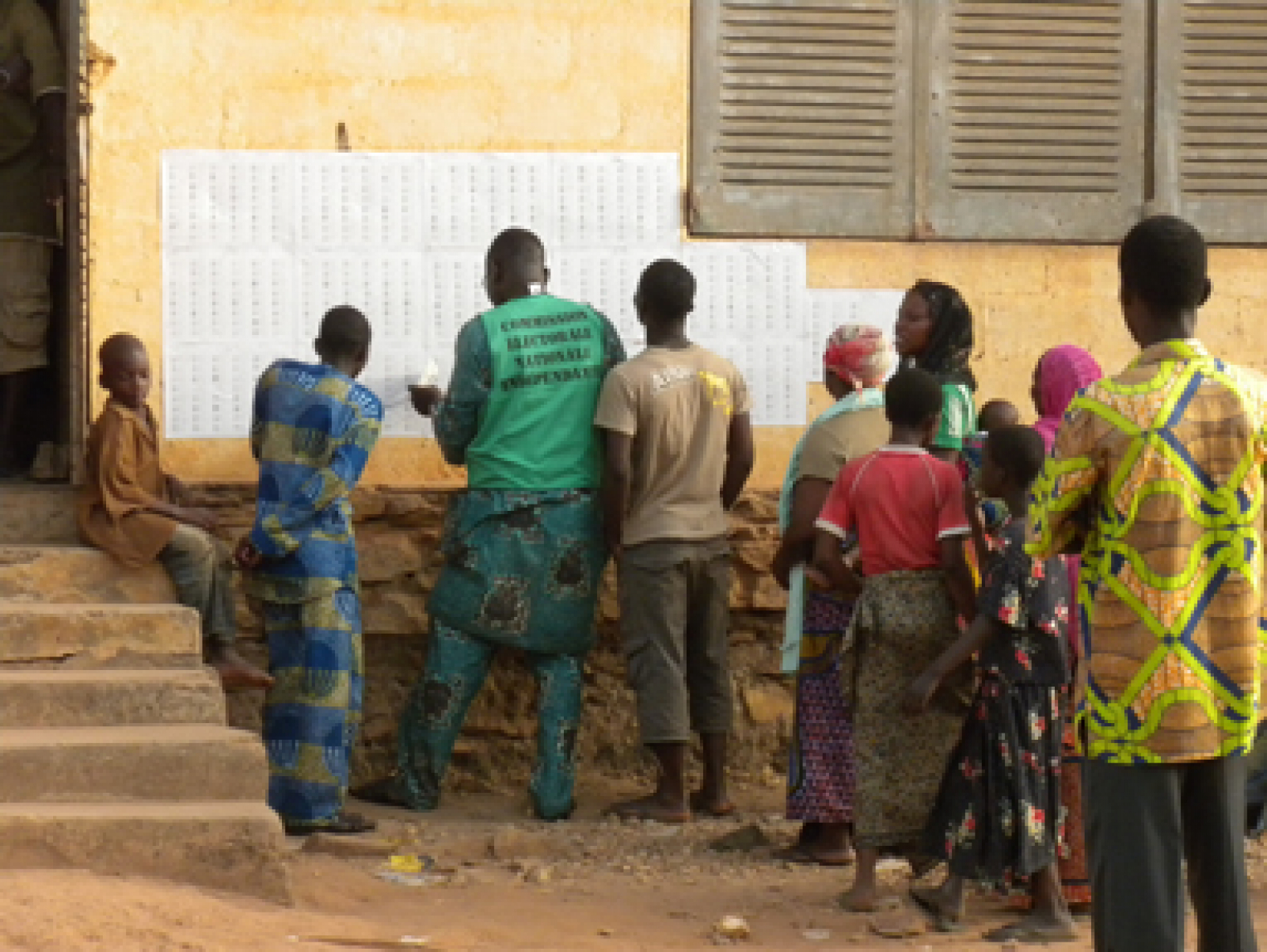
SHARE
ISSUES
Togo’s March 2010 presidential election represented a positive step in the country’s democratic development. Violence surrounding flawed presidential elections in 2005 resulted in the deaths of hundreds of citizens, and the displacement of many more. In the run-up to the 2010 presidential poll, the country’s longstanding political and ethnic divides again heightened the potential for electoral violence. But while opposition parties alleged serious irregularities during the vote tabulation process, voting on election day proceeded peacefully. Incumbent President Faure Gnassinbé, candidate of the Rally for the Togolese People party (Rassemblement du Peuple Togolais - RPT), won reelection with 61 percent of the vote. Following the announcement of the official election results, limited incidents of violence between security forces and opposition protesters occurred. In stark contrast to the reprisals that occurred in the wake of the 2005 poll, Togo’s security forces responded to these incidents in a more professional and measured manner.
In the wake of continuing protests over the conduct of the presidential election, President Faure Gnassingbé’s government opened talks with Gilchrist Olympio, the long-time leader of Togo’s principal opposition party, the Union of Forces for Change (Union des Forces de Changement – UFC), and other opposition leaders on the formation of a coalition government. On May 27, Olympio announced the UFC’s entry into a historic power-sharing agreement, marking the first time the UFC would participate in an RPT-led government. Though many of the country’s opposition parties expressed guarded support for the new government’s reform agenda, Olympio’s decision to enter the government has split the UFC, with many members remaining on the side of UFC presidential candidate Jean-Pierre Fabre, who continues to protest the results of the recent election.
Current Activities
Through support from the U.S. State Department’s Bureau for Democracy, Rights and Labor (DRL), NDI is implementing a program to promote credible elections and accountable government in Togo. During the electoral period, NDI assisted the Togolese National Council of Civil Society (CNSC) to train and deploy independent election observers in polling stations in Togo’s five administrative regions and the commune of Lomé. In the post electoral period, NDI is helping the CNSC draw lessons learned from the observation effort and the CNSC’s evaluation of the electoral process. To carry the momentum and mobilization generated during the electoral observation into the post election period, NDI is working with the CNSC to convene focus groups to identify key citizen priorities and concerns. Information gathered through the focus groups will be used by the CNSC to conduct advocacy activities and develop tools to promote government accountability at the local and national level.
During the electoral period, NDI also conducted a USAID-funded program to assist Togolese political parties to promote a peaceful electoral process. Through the program, NDI convened Togolese political parties, including the ruling RPT and the majority of the country’s opposition parties, to debate and draft a code of conduct to govern political party behavior during the electoral process. The program provided an unprecedented opportunity for constructive interparty collaboration. As the country prepares for local elections later this year or early 2011, NDI will work with parties to revise the code of conduct, as necessary, and to publicize it widely. NDI will also support a consortium of four Togolese civic organizations as they conduct activities to promote the political participation of women as candidates and voters in the elections. Such initiatives could include: the training of women candidate master trainers, radio programming to raise awareness on the importance of women’s engagement in politics, or get-out-the-vote efforts targeted at women voters.
Past Programs
Since 1997, NDI has conducted a series of short-term assessments and programs in Togo. In August 1997, NDI organized a training seminar for the Togolese National Assembly on media relations and public outreach. Prior to the 1998 elections, NDI deployed an assessment team to evaluate election preparations and make recommendations to improve prospects for democratic reform in Togo. In 2001, NDI co-sponsored with the Lomé-based U.N. Regional Center for Peace and Disarmament in Africa a seminar on civil-military relations in the region. In 2003, NDI sent a multiparty delegation of Togolese party representatives to Cotonou to observe a political party roundtable organized following Benin’s 2002 elections. In response to training requests from Togolese political parties, the Institute also convened 30 representatives from nine political parties interested in observing Togo’s June 1 presidential election for a political party poll watcher training workshop in Benin. Ahead of the 2005 presidential elections, NDI trained political party representatives to observe the electoral process. The Institute also assisted Togolese media and civic groups to coordinate advocacy efforts and prepare citizens to participate in a democratic transition.
Funding
NDI’s current program in Togo is funded by the U.S. State Department’s Bureau for Democracy, Rights and Labor (DRL) and the United States Agency for International Development (USAID). Past programs were funded by USAID and the National Endowment for Democracy (NED).
Contact Information
For more information about these programs, use our contact form or contact:
Lomé, Togo
Badié Hima, Resident Director
(228)760-6416 / (228) 847-1924
Washington, D.C.
Ulrike Scholl Dorn, Program Manager
(202) 728-5453


